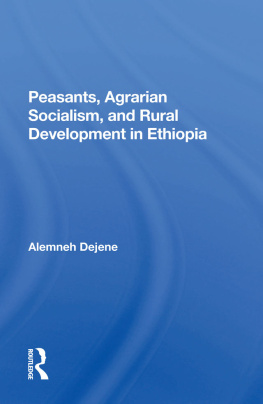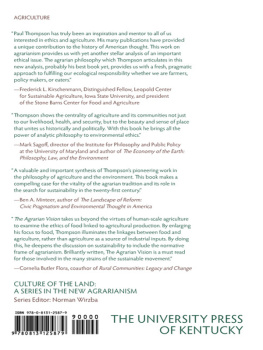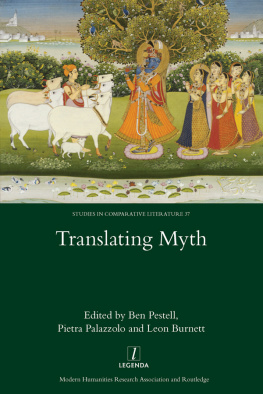
OTHER BOOKS IN THIS SERIES
A Rich and Tantalizing Brew: A History of How Coffee Connected the World
To Feast on Us as Their Prey: Cannibalism and the Early Modern Atlantic
Inventing Authenticity: How Cookbook Writers Redefine Southern Identity
Forging Communities: Food and Representation in Medieval and Early Modern Southwestern Europe
Aunt Sammys Radio Recipes: The Original 1927 Cookbook and Housekeepers Chat
Chop Suey and Sushi from Sea to Shining Sea: Chinese and Japanese Restaurants in the United States
Mexican-Origin Foods, Foodways, and Social Movements: Decolonial Perspectives
Meanings of Maple: An Ethnography of Sugaring
The Taste of Art: Food, Cooking, and Counterculture in Contemporary Practices
Devouring Cultures: Perspectives on Food, Power, and Identity from the Zombie Apocalypse to Downton Abbey
Latin@s Presence in the Food Industry: Changing How We Think about Food
Dethroning the Deceitful Pork Chop: Rethinking African American Foodways From Slavery to Obama
American Appetites: A Documentary Reader
Copyright 2020 by The University of Arkansas Press
All rights reserved
Manufactured in the United States of America
ISBN: 978-1-68226-137-8
eISBN: 978-1-61075-725-6
24 23 22 21 20 5 4 3 2 1
Library of Congress Cataloging-in-Publication Data
Names: Singer, Ross, 1980 author. | Grey, Stephanie Houston, 1965 author. | Motter, Jeff, 1977 author.
Title: Rooted resistance : agrarian myth in modern America / Ross Singer, Stephanie Houston Grey, Jeff Motter.
Other titles: Food and foodways (Fayetteville, Ark.)
Description: Fayetteville : The University of Arkansas Press, 2020. | Series: Food and foodways | Includes bibliographical references and index. | Summary: This monograph uses a series of case studies to explore the agrarian myth in modern America and its intersection with movements for food system change, including the organic and fair trade movements in the United States. The authors suggest that agrarian myth continues to provide a rhetorical pathway for positive systemic change in the food system Provided by publisher.
Identifiers: LCCN 2019053168 (print) | LCCN 2019053169 (ebook) | ISBN 9781682261378 (cloth) | ISBN 9781610757256 (ebook)
Subjects: LCSH: Organic farmingUnited StatesCase studies. | AgricultureSocial aspectsUnited StatesCase studies. | FoodSocial aspectsUnited StatesCase studies. | Anti-globalization movementUnited StatesCase studies. | Agricultural systemsUnited StatesCase studies.
Classification: LCC S605.5 .S565 2020 (print) | LCC S605.5 (ebook) | DDC 631.5/84dc23
LC record available at https://lccn.loc.gov/2019053168
LC ebook record available at https://lccn.loc.gov/2019053169

The paper used in this publication meets the minimum requirements of the American National Standard for Permanence of Paper for Printed Library Materials Z39.481984.
SERIES EDITORS PREFACE
The University of Arkansas Press series on Food and Foodways series explores historical and contemporary issues in global food studies. We are committed to representing a diverse set of voices that tell lesser known food stories and to provoking new avenues of interdisciplinary research. Our strengths are works in the humanities and social sciences that use food as a critical lens to examine broader cultural, environmental, and ethical issues.
Feeding ourselves has long entangled human beings within complicated moral puzzles of social injustice and environmental destruction. When we eat, we consume not only food on the plate, but also the lives and labors of innumerable plants, animals, and people. This process distributes its costs unevenly across race, class, gender, and other social categories. The production and distribution of food often obscures these material and cultural connections, impeding honest assessments of our impact on the world around us. By taking these relationships seriously, Food and Foodways provides a new series of critical studies that analyze the cultural and environmental relationships that have sustained human societies.
Rooted Resistance offers a sophisticated analysis of the agrarian myth in modern American food and foodways. By drawing on a variety examples that range from the wartime politics of home-front gardening to the rhetoric of pickup truck advertisements, Ross Singer, Stephanie Houston Grey, and Jeff Motter reveal how diverse communities of Americans in the twentieth and twenty-first centuries have engaged, transformed, and deployed presumptions of the virtuousness of farms and farmers in their heterogenous efforts to enact agrarian visions of the future through nostalgic allusions to the past. In doing so, Rooted Resistance demonstrates how agrarian rhetoric emerged as one of the lowest common denominators of normative discourse in American culture, even, at times, spanning divisions of race, class, and gender as an appealing mode of communication used to challenge notions of selfhood, value, and belonging in modern American society.
At once critical and sympathetic, this book provides perspective on significant touchstones of American agrarianism that have too often been glossed. The authors discussion of the history and historical memory of the famed South Central Farmers community garden of Los Angeles, for instance, underscores the importance of agrarianism as a rhetoric of class and race-based resistance to capitalism as well as a potent legal vision undergirding private property. Likewise, the authors provide fresh insights into the stakes held by agrarian myth in American culture and politics over the last century through uncompromising yet compassionate treatments of broadly recognized figures of modern American agrarianism like Wendell Berry, Jerome I. Rodale, and the self-styled Southern Agrarians.
By incorporating the analytical sensibilities of rhetorical analysis along with cultural geography, intellectual history and historiography, communication, and critical theory, Rooted Resistance contributes far more than just another empirical set of case studies. It offers a model of interdisciplinary work that will thrill popular and scholarly readers alike.
JENNIFER JENSEN WALLACH and MICHAEL WISE, Series Editors
INTRODUCTION
Mythic Rhetoric Imagines the American Garden
Americans are increasingly conscious of the food and agriculture systems multiple, impactful effects on their lives, as well as the world around them. As evidenced by the proliferation of farmers markets, urban community gardens, grocery cooperatives, community-supported agriculture programs, and farm-to-table restaurants, we are experiencing an agrarian turn focused on the ethics of food production and consumption. Reframing individual consumer taste and food choice as intricately intertwined with collective, societal issues such as social justice, public wellness, and environmental sustainability exposes the realization that without deep change in the food and agricultural system, society itself is at stake. A new agrarianism rooted in local production on manageable scales may, therefore, be crucial to staving off disaster.
This book responds to this anxiety and hope with a historical and rhetorical perspective on agrarianism, specifically the endurance and evolution of American agrarian myth. As scholars of rhetoric working in the academic discipline of communication in the United States, we approach the new agrarianism and todays food movement as a network of discourses directed toward social change through altered relations between food, people, and nature. However, the agrarianism that we explicate remains deeply tied to a past vision of connectedness to community and land. This vision predates industrial agriculture, the petroleum economy, and consumerist culture. Despite the violence and exploitation that has sometimes characterized rural life, the ethos of transformation offered by living closer to the land remains an evocative presence in the American cultural imagination. As we will explain with historical detail, agrarianisms social identity is linked to a democratic vision, is imbued with spiritual meanings, and is flexibly adaptable to a multitude of circumstances. At root, this identity is discursive and imaginary, emanating from a foundational myth of exceptional American character. This myth suggests that Americans derive defining moral and political virtues from farming as a way of life.



 The paper used in this publication meets the minimum requirements of the American National Standard for Permanence of Paper for Printed Library Materials Z39.481984.
The paper used in this publication meets the minimum requirements of the American National Standard for Permanence of Paper for Printed Library Materials Z39.481984.



